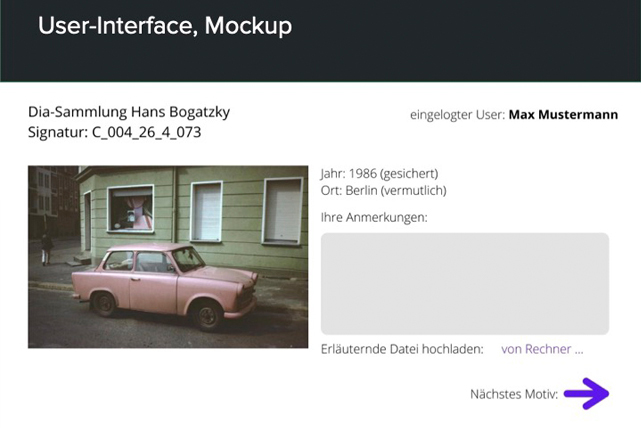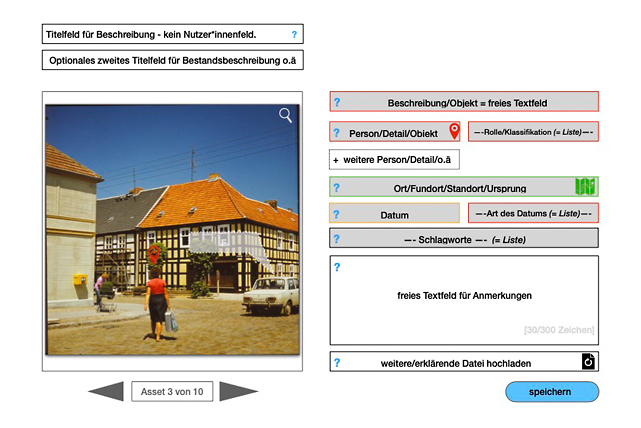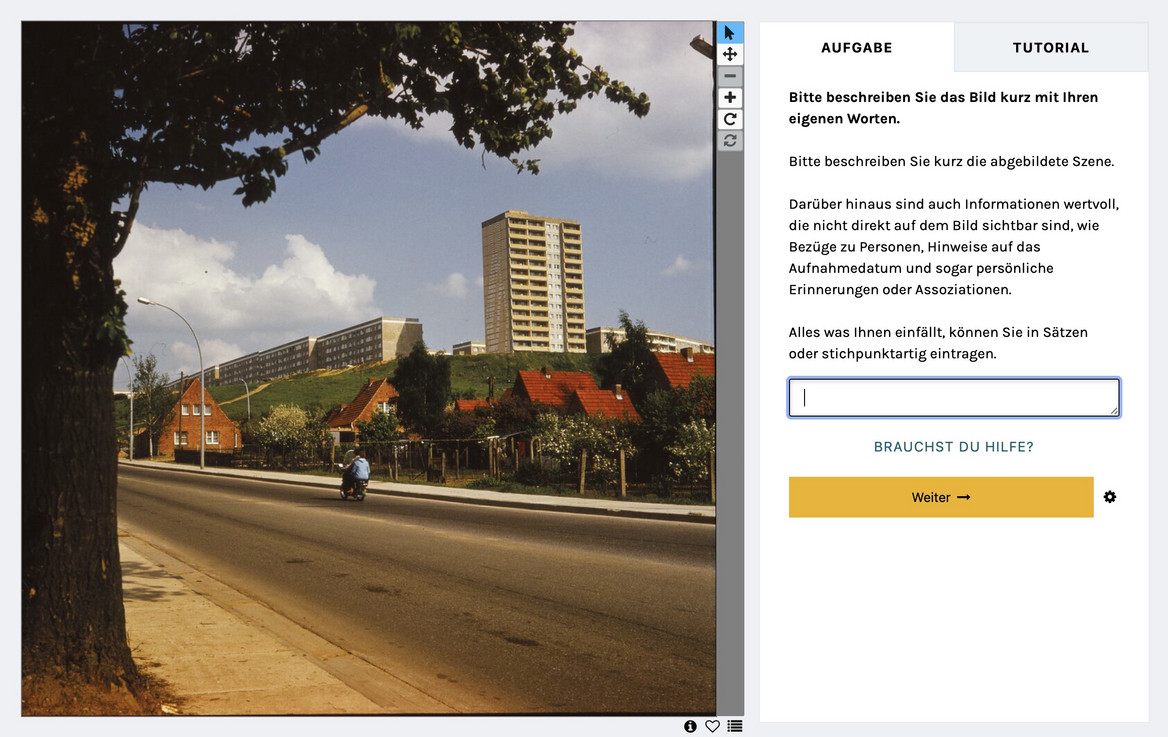Development of a Citizen Science and Semantic Web-based Procedure for the Digitalisation and Indexing of the Holdings of Small Archives (CitizenArchives)
Research department: Contemporary History and Archive
Project Leader within IRS: Dr. Rita Gudermann
Project Team: Paul Perschke
Consortium: Leibniz Institute for Research on Society and Space (Coordination) Programmfabrik GmbH
Funding Organization: Federal Ministry for Economic Affairs and Climate Action
Duration: 12/2021 - 11/2023
In this project, processes and a product for the simple digitalisation, indexing and publication of the holdings of smaller, specialised archives, whose personnel and financial possibilities rarely permit comprehensive digitalisation, are to be developed on the basis of the scientific collections' own holdings and with the help of various pilot users. The aim is to develop processes and a product that combines Citizen Science approaches with Semantic Web technologies in order to digitise archive holdings with the help of free resources from users in orderly, IT-supported processes, to make them accessible and to make them available to the public.
Under the motto "Make cultural assets accessible, use knowledge and commitment!", resources such as commitment, knowledge and time of interested and expert users, scientists and contemporary witnesses are to be used to support small archives in the digitalisation and indexing, especially the indexing and description of holdings.
The Scientific Collections are cooperating with the company Programmfabrik GmbH in the development of a corresponding procedure. Programmfabrik is the developer of the product easydb, a framework for creating metadata and media repository services in the scientific environment. In addition to this technical know-how, Programmfabrik also brings many years of scientific and cultural project experience to the table. Customers include renowned archives as well as research and educational institutions throughout the German-speaking world. The scientific collections of the IRS have also recently started using easydb as an image database/digital asset management system and thus offer good technical prerequisites.
In addition, the collections offer outstandingly suitable holdings and a network of potential pilot users with whose involvement the mechanisms and processes are to be tested and optimised in the course of the project. The participation and assistance of users offers the possibility of making collection material publicly accessible in the early phase of digitalisation and indexing. However, moderation and quality control are necessary to ensure a standard of the content and data obtained. These processes will be developed and described within the framework of the project, primarily by the scientific collections, and later technically supported and simplified by additional plug-ins.
In a later phase of the project, a research institution is to be brought in as a further partner for an expertise on Semantic Web technology by means of a consulting assignment. The aim is to evaluate the content obtained and, if necessary, to develop algorithms to enrich it with AI support or to mark it as unreliable.
The final result should be an unbureaucratically available open source product in the form of a central knowledge and communication platform with various plug-ins, which will enable every archive to involve its users in the digitisation and indexing work. Analogous to the project partners, non-profit and commercial interests are to be combined.




